Book Reviews by Genre: Historical
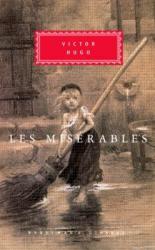
One of the most profound pieces of literature ever crafted, simply due to the fact that the main character is a metaphor for Jesus Christ. This masterpiece of prose has been well documented, however, it relates human tragedy and a profound love as only Mr. Hugo himself could have imagined the reader could absorbed. Cosette is a wonderful character as well as lil' Gavroche and he introduces unknown things to an American audience if they ever read books anymore.;)
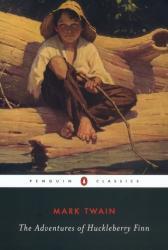
A classic piece of literature, The Adventures of Huckleberry Finn by Mark Twain is a wonderful depiction of life along the Mississippi river and times past. Huckleberry Finn is a wild, adventurous, and self-sufficient young man who finds his way along the river with an escaped slave. Stealing, superstitions, and deception all describe the journey Huck Finn and Jim take together. They encounter rivaling families, con artists, and Tom Sawyer in their attempt to get north. Mark Twain paints a vivid picture of life in the South with slavery in a way that shows that not everyone believed the same thing. A truly fun and interesting story, The Adventures of Huckleberry Finn is a book that will interest even the most disinterested reader.
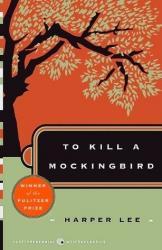
To Kill a Mockingbird is truly a masterpiece of American literature.
Along the lines of Tom Sawyer and Huckleberry Finn, Harper Lee presents us with a coming of age story set in 1930s Alabama. Scout and Jem Finch explore their hometown, get into trouble, wonder about the mystery of Boo Radley, and are faced with a great challenge when their father must prove a man to be innocent. Atticus Finch, Scout and Jem's father, is a wholehearted, unprejudiced role model who always stands up for what is right and who anyone can learn a lesson from. Overall, I understand why many schools require their students to read this book as it is wonderful literature for all generations.
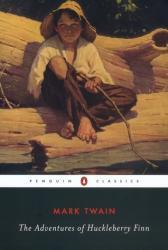
You are slowly floating down river on a warm summer night. You have no worries as you gaze at the endless stars above you. You had a simple day; catching fish to eat and lazily laying in the sun as you float wherever the river takes you. This is the life of Huckleberry Finn.
I gave this book three out of five stars because it was good however it wasn't good enough for me to consider it one of my favorite books. I appreciated the multiple conflicts, the complexity of having several conflicts at once made the book interesting. The characters were all well developed even side characters had underlying intents, and backgrounds.
Additionally, the relationships between the characters was engaging, I especially enjoyed the dynamic between Huck and Jim. Finally, I really enjoyed the internal conflict of Huck as he traveled with a slave. Huck's moral conflict from a society being raised in a society that supports slavery was striking as a 21st century teenager. Despite the positive elements of "The Adventures of Huckleberry Finn" it is only pretty good because I couldn't relate to the characters and the book lacked an emotional connection that would make it one of my favorite books. Regardless, you should read this book for to develop an understanding of the culture of the past.
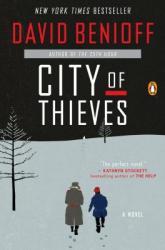
Could not put this book down. The story kept me guessing about what might happen next, but the two main characters were brought to life by the author's ever-present humor of humans in tough situations. One of the best books I've ever read.
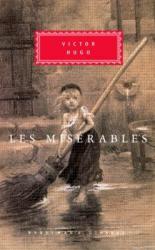
Jean Valjean has been in prison for 19 years. On the day he is freed, he walks to the city of Digne, which is over thirty miles away. Exhausted, he searches for food and shelter, but is rejected at each place he goes to because he was a former convict. Finally he is told to ask the Bishop of Digne for help. The Bishop agrees without hesitation. Valjean wakes up early in the morning and steals the Bishop's silverware. He is caught and brought back to the Bishop, but the Bishop saves Valjean from returning to prison by pretending that the silverware was actually a gift. He even gives Valjean silver candlesticks as well. The Bishop convinces Valjean to turn around his life.
Exceptionally strong character development was a highlight for me. Some themes in this classic are sacrifice for others and unexpected generosity; for example, Valjean has an opportunity to shoot his worst enemy, but instead decides to free him. The plot also weaves the connections between characters magnificently. This book has made me experience emotions more strongly than any other book I've read.
Les Miserables is a relatively long novel; Victor Hugo (the author) is willing to become verbose frequently. I actually enjoyed its details, which made me more immersed in the story. If you don't usually read books with philosophy, it may take a little getting used to. Even if you have already watched the play, the book is still worth considering; there is plenty of extra material in the book that the play skips.
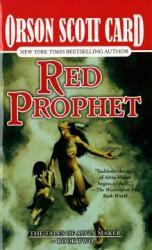
Continuing from the previous book in the Alvin Maker series, Red Prophet flashes back and shows certain events from a different point of view before driving forward into some fascinating alternate history. I continue to enjoy the fantastical elements brought into American history, even to the point of explaining how certain famous historical figures were the way they were. Although, if you know enough history, you’ll realize the fates of some of the characters presented in Red Prophet (William Henry Harrison, for instance) might not need the foreshadowing missing from this text.
While Seventh Son managed to set up this alternate history and establish some of its rules, Red Prophet delves into the action and excitement that comes from some of the more “kinetic” talents of these characters. Once the plot catches up with where Seventh Son left off, I was hooked. The interactions between Alvin and the Native Americans were quite interesting, and I found everything up until the climactic battle to be top-notch storytelling. Sure, it took a little while to get there, having to first set up the eponymous “Red Prophet” and his powers of observation, but it was worth it in the end.
My one qualm with this book lies in some of its more peculiar metaphor, allegory, and allusion. Near the end of the book, several scenes and sections feel entirely disjointed from the narrative. Perhaps they were to serve some “higher purpose” to lay out the moral of the story—or even the series as a whole. These scenes had characters who suddenly were ripped out of their normal behavior and put into a completely different context. And for what? To show that the history of the Native Americans is rich and varied while also infused with war and darkness? There had to be some other way to convey this than the way it was done here.
An action-packed follow-on to Seventh Son that gets a little too “heady” at times, I give Red Prophet 4.0 stars out of 5.
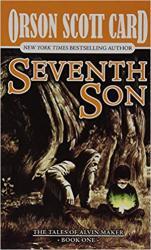
Having loved Orson Scott Card's Ender Saga, I decided to start into another of his series, Tales of Alvin Maker. I was used to his science fiction writing, so I thought it would be interesting to see how he handled semi-historical fiction. For the first book in a series, Seventh Son certainly has its strengths and weaknesses. It’s clear this book came on the heels of the Ender Saga, as there are a lot of parallels between characters and motifs that I just couldn’t ignore. Not that that’s necessarily a bad thing by any means.
While the history of colonial America is the setting of Seventh Son, the fantasy elements added to it made for an interesting read. I did appreciate the distinctive “good vs. evil” conflict between the Makers and the Unmaker, even if it’s a little too tried and true. At the very least, while the religious characters had some amount of strawman characterization set against them, they were well rounded enough not to make the whole story seem too anti-Christian. They weren’t necessarily the enemies, but their ignorance factored into the enemy’s tactics.
Perhaps the little snippets of American history sprinkled throughout this book were what intrigued me the most. Sure, the superstition and “magic” involved in creating an alternate timeline of history made quite a bit of sense. However, without at least a cursory knowledge of these events and historical figures, then readers could potentially miss a lot of substance. As with the Ender Saga, Card uses his writing to dive into different theologies and philosophies that do more than merely entertain. The fact that books like this can be thought-provoking through solid characters is a testament to his talent as a writer.
An adequate start to a series with plenty of potential, I give Seventh Son 4.0 stars out of 5.
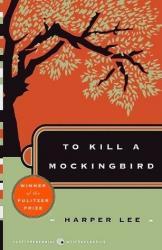
To Kill a Mockingbird, by Harper Lee, is a fantastic novel that examines the racism present in the South during the Great Depression. The book includes several remarkable instances of justice being served to the widespread prejudice present, which captures the reader. All of the character are well developed and serve well in their roles, especially the main protagonist. The entire setting is also intriguing and forms a solid foundation for the plot. Overall, I would recommend this book to anyone as it is a fascinating tale about Southern life.
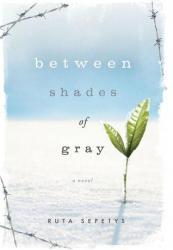
Taking place during WWII... Lina, a fifteen-year-old girl, lives a peaceful and normal life drawing and going to school but when the NKVD, better known as Soviet officers, force them to leave, adventure and chaos abduct Lina's normal lifestyle. Lina, her brother Jonas, and her mom Elena have to travel by train living with the bare minimum to survive off of. From Soviet officers forcing them to work to stealing food to survive, Lina has to find a way to outlast WWII and the capture of her family. Her main goal through all this; to find her dad. This dramatic adventure written by Ruta Sepetys will pull you off your seat.
Reviewer's Age: 15
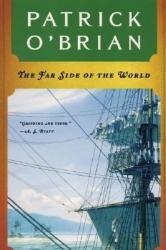
Nautical historical fiction is a rare genre for me to read. The last one I read—and that most people would be able to recognize—was Moby-Dick , and that was probably 15 years ago. Needless to say, I found myself in brief possession of The Far Side of the World and decided to give it a read. Of course, this was mostly because of the movie of the same name released in 2003 that earned many Oscar nominations (only winning in two). While the plot of both is slightly different in a few key areas, I wasn’t disappointed with having read this book.
First, as a historical look into the realms of sailing and whaling at the time, The Far Side of the World does a fantastic job of informing and educating the reader without necessarily resorting to huge exposition dumps. Sure, a few moments were a little obvious that the author was trying to get information across as quickly as possible, but these were rare. Secondly, this book seemed to include an exhaustive amount of problems that you’d encounter when sailing the seas. This meant that each page of each chapter had something the crew was trying to overcome, even if this seemed like a distraction at most times.
While the main thrust and driver of the plot of The Far Side of the World was clear from the start, my one qualm with this book was its inability to transition from one thought to the next. It sure had a steady pace, like a ship cutting through calm waters. Sometimes, though, the different topics would come in a choppy way that made me double back and re-read a page to make sure I didn’t miss some crucial transition (which were rarely there). Perhaps this adds to the realism of the “things happen without expecting them” element of sailing. Far too often, I found myself trying to figure out why this minor sub-plot mattered before it changed to something else entirely.
A thorough and steady-paced nautical historical fiction, I give The Far Side of the World 3.5 stars out of 5.
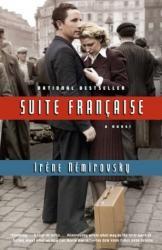
Suite Francaise is an interesting book detailing the experiences of multiple characters and what they face as they evacuate Paris and deal with the German occupation of France. I read this book for school but still found it very interesting. It was a bit slow at first with exposition of characters in almost every chapter. I did enjoy getting to see how different classes reacted to having to leave their homes and what they faced afterwards. Not only does Nemirovsky use multiple characters to show the difference in experience, but also her use of imagery and figurative language add to the essence of struggle. Overall, I enjoyed this book but wouldn't have chosen it myself.
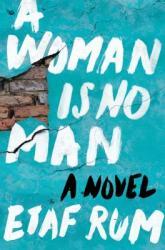
Definitely among my favorite books of the year. Beautifully written in alternating points of view, each woman's story is absolutely compelling, enraging, and heartbreaking. There was a passage toward the end of the novel where I found I actually was holding my breath.
This is the type of book that makes you understand the power of words and stories and how important they are, on so many levels - from Isra reading to escape her suffocating life, to Deya for whom books mean freedom and education and choice, to the reader who is ultimately changed by the experience of their story.
This book is going to stay with me for quite a while - definitely an author to keep on my radar!!!
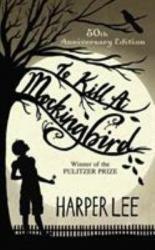
To Kill a Mockingbird is a well thought out, very deep and well executed book. Although it contains some very strong language, I'd say this is a must read for any teenager. Set during the time of the depression, this book deals with many political issues such as racism while also managing to teach very important lessons along the way. The complicated sentence structure in the book, as well as the vocabulary serve to make it a very fun and chalenging read. In my opinion this book is truly one of the best written in history.
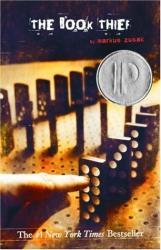
The Book Thief is a very well known book/movie and for good reason.
This story follows a young girl living in Nazi Germany who deals with her family hiding a Jewish man, the book burning's, and her own insatiable love for reading. The Book Thief gives an interesting perspective of World War II that we don't often see in historical novels with a story about a blind follower of the Nazi Regime but who also sympathizes with Jewish people. I really enjoyed this book as someone who loves WWII history and personal stories. I highly suggest this book to any reader, I think it is a very important story to read.
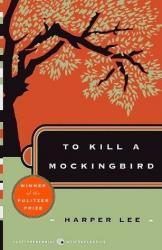
This book is an examination of racial tensions and living as someone who defies the social norms to do greater good. It follows a small family that consists of a father and his two children. The father, a lawyer, becomes the first white man in his time and area to defend a black man in court, alienating himself and his family from the rest of their society (because he did what was practically unspeakable in the town's eyes). A fascinating series of events ensue, in which the children grow up learning what it feels like to feel prejudice and can thus empathize with the struggle that colored people around them face. The father must sacrifice his social standing and endure hatred and threats because he chooses to defend the truth, rather than the race. All in all, I would recommend this book not only for its complex and very interesting plot, but also for its analysis of racism and human nature in regards to the greater good and a sense of humanity. Themes of empathy and sacrifice then escalate the plot to its famous and unexpected finale. It is worth the read even only for the father's speech in court towards the end of the book, where he makes his case in favor of a colored man. I would give this book five out of five stars.
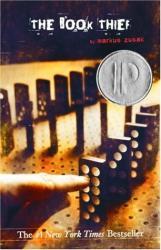
This book follows a young girl living in Nazi Germany, whose family harbors a Jew hiding out from the secret police. Facing prison time, shame, or even loss of life, the girl and her family must be immensely careful to remain neutral and non-proactive. Any anti-Nazi actions, which were quite subjective and meaningless actions, sometimes, could be used against people.
Not to mention, people were being oppressed based on physical appearance and mannerisms, alone. The Jewish man, though, educates the young girl and becomes her best friend. When he chooses to leave their family, due to not wanting to put them in danger and also being in increasing danger himself, the girl faces loss she has never known before. The plot escalates until Germany is liberated by the Allied powers, and the girl grows up to tell warning tales of Nazi-like power regimes and social inequality. This book is fantastic, especially because it has recurring themes of morality, power struggles, humanity, and love or sacrifice. The plot is fascinating with many historical attributes and the characters are so well depicted that the book reads like an old story. I would recommend this book to anyone looking for a deep thought kind of books but also something with an entrancing story and an amazing writing style. I only give it four out of five stars because I personally struggle with conflict areas of war in books and more intense or dark themes. Otherwise, fantastic read!
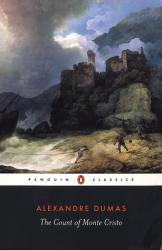
This book is amazing. The story follows the tale of Edmond Dantes and his quest for revenge against the three men responsible for his incarceration. It is a very simplistic concept, but upon reading the novel one will find a book filled with characters that live and breathe, action that is relentless, and many subplots threaded throughout the novel in intricate ways. The book, while extremely long, is entertaining all the way through. The ending is satisfying and ends the book well. I would recommend this book for anyone who is a fan on action novels, or revenge novels.
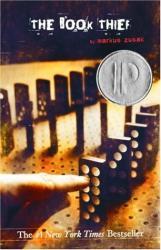
The Book Thief is a novel set over the World War II period. It tells the story of a young orphan, named Liesel. She arrives to her new home with her foster parents, Hans Hubermann and Rosa Hubermann. As she lives there, her love for books begins to grow. Taking risky steps, she steals books from many others, even rescuing one from a pile of burning books of the Nazi bonfire.
As time passes by, Liesel and her family secretly shelter a Jewish boy from the father that had once saved the life of Liesel's father, Hans.
This book was well written and enjoyable to read. It took the perspective of two significant characters, Liesel and Death, which offers a standpoint that the reader could decipher themselves. In addition, with the inclusion of dry humor and insightful observations it would demonstrate a more impactful feeling towards the reader with the overall fate of the characters and the story. This is an important detail, that adds much more feeling that is captivating and interesting.
The Book Thief was a book that could not be predictable, nor fast paced.
Rather it was slow and every turn of direction the story had felt dangerous and worthwhile. It is important for the reader to understand it slowly, however is contradictory to the fact that it is highly captivating to want to see what will happen next. The Book Thief is personally a very well written book and is one of my favorites.
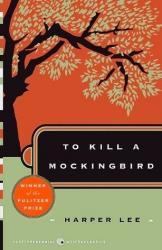
To Kill A Mockingbird is a book set in the early 1930s that describes the story of a family in the quiet town of Maycomb in Alabama. Currently suffering in the Great Depression, Scout Finch and her brother, Jem, live with Atticus, their widowed father. During the summer, Finch, Jem and their neighbor Dill explore their street to find an eerie house owned by a man named Mr. Nathan Radley. They learn that he has been living their for years with a brother, Arthur, and has never ventured outside.
The book took a simple setting and turned it into an exciting and intriguing plot line. It was unpredictable for the courses of events that took place, where it was never boring and was continuously captivating.
Personally, I enjoyed most about the creative plot line and course of events that happened in the book. It is an extremely unique book that is in an uncommon time setting, which creates a more enjoyable experience. This is one of the best books I have read.
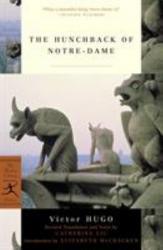
Victor Hugo is one of those classic authors who I’ve hesitated reading because his stories tend to have a lot of details that don’t necessarily add to the plot. Sure, The Hunchback of Notre Dame is no Les Misérables , but Hugo’s style made this book perhaps a little longer than it should have been. Either way, now I know a lot more about the architecture of Notre Dame Cathedral. Despite all this, the story of The Hunchback of Notre Dame is timeless in many ways, not the least of which centers around its titular character.
While modern stories are vying to be inclusive and diverse, Victor Hugo managed to write a story in the 1800s that not only included a disabled individual but racially diverse characters (at least for France) as well. The fact that both are sympathetic protagonists helps cement Quasimodo and Esmerelda in my mind. They’re both persecuted in their own ways; ostracized from a society that wants homogeneity more than diversity. Sound familiar? Perhaps this is why this book maintains a timeless quality. Even with the slight twist in the ending, the harassment endured by these individuals doesn’t dampen their kind spirits.
For those who might be more familiar with the Disney version of this story, the movie adaptation is more along the lines of a kid-friendly (i.e., sanitized) version of the basic plot. There is quite a bit more violence and “romance” involved in this story—not to mention the obvious absence of talking gargoyles—which I felt made it a little more convoluted than it had to be. Still, Hugo’s way with words was mesmerizing throughout, even if I know that they’ve been through the filter of a translator. If Les Miserables is daunting to you, perhaps try warming up with The Hunchback of Notre Dame, first. You won’t be disappointed.
A timeless classic full of diverse characters and exciting action, I give The Hunchback of Notre Dame 4.0 stars out of 5.

The Scarlet Pimpernel is a wonderful book that incorporates the idealism of the French Revolution to create a unique setting. The historical adventure story is filled with a great blend of suspense, thrills, and romance. The developments included in the story are well-executed and the characters are all full of life. The overarching plot is also intriguing and will captivate the reader until the end of the book. Overall, I would recommend this book to anyone, especially those who like a bit a history.
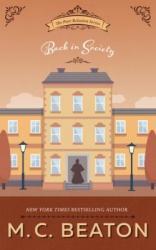
Mildly entertaining, The "Poor Relations" Series isn't nearly as suspenseful, nor well-written as Marion Chesney's popular "Hamish MacBeth" Series, nor as interesting and comical as the feisty Agatha Raisin of the "The Agatha Raisin Series". With the exception of a few of the characters, such as the loathsome, ill-mannered Sir Philip and the interesting Lady Fortescue and Harriet, the former cook and now the Duchess of Rowcester, the heroine of this book, Lady Jane is a Lilly-livered character who although young, cannot stand up for herself in any situation. She is so unlike the sharp-tongued, independent, although vulnerable Agatha Raisin that her character is seems like a "doormat". Unlike the first book of this series "The Poor Relations", which heralded the strength of character, independence and backbone of each character, the plot of this book seems contrived and somewhat unbelievable, perhaps because no young woman in this day and age would be as weak as it's "heroine" Lady Jane. This book was written in '94, under the pseudonym of Marion Chesney, perhaps when M.C. Beaton's was developing her writing style. However, in this day of strong, independent women, the Cinderella story of being rescued by Prince Charming this hackneyed story seems boring and mundane.
The excellent writing of M.C. Beaton seems to be absent in this novel, and the "damsel's in distress" theme of "Back in Society" is dated and uninteresting!
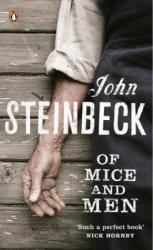
Of Mice and Men is a true classic. It is a gripping tale of friendship and tragedy that takes place during the Great Depression. Lennie and George are very well-developed characters and their story of fulfilling their American Dream is one that you won't want to put down. Of Mice and Men is a surprisingly short read, but its story is enormous. While the book does include some controversial topics, it is still a very good read that I would recommend to anyone.
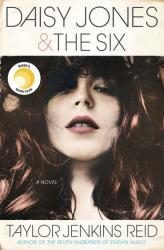
Daisy Jones & the Six is a telling of the eponymous band's tumultuous story, by the band and in interview format. Its kind of: Almost Famous -The Fleetwood Mac Story. There's drugs, sex (some consensual), drugs, rock & roll and drugs! There are a lot of drugs. But mostly, there's an intensely readable character study about a bunch of talented young people who couldn't get out of their own way.
At the recommendation of a friend and colleague, I read one of Reid's other books, the Seven Husbands of Evelyn Hugo and I adored it. When I was approved for Reid's newest on Netgalley, I was pretty excited and rightly so: this book did not let me down. It truly is a book about complex characters told against the gritty, adrenaline filled background of rock & roll in the 70s. I sometimes felt I was almost at the concert, waiting the wings, electrified. The atmosphere was to die for. But again, the characters are the whole thing. Daisy and Billy, our two main characters, were both interesting to read for their own reasons, but my favorite by far was Karen. I did a fair amount of highlighting in this book, and most of those lines belonged to Karen (the rest, Daisy). This book is just dying to be made into a movie (a google search reveals, that, even better - its been optioned as a tv mini-series on Prime! Dream casting: Jenny Lewis should play Daisy Jones. Digression over.) as the characters practically spring off the page. Really, the only downside for me was that it didn't feel new. I've read versions of this story before. But this is a great version of that story, and if you like a good tortured romance, or have felt moved by music, I think this book will make you feel something. I did. 4 stars - I really liked it.
Thanks to Netgalley and Ballentine Books for the advance copy, which I received in exchange for an honest review. Daisy Jones & the Six is available on 05 March, but you can put your copy on hold today.
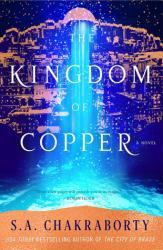
Kingdom of Copper is the sequel to City of Brass, and there are spoilers for that book ahead.
Kingdom of Copper picks up about five years after the events of City of Brass. Nahri is married to Muntadhir and is navigating court politics and learning to use her skills as magical healer. Ali, after getting exiled from Daevabad following the events of City of Brass, has managed to survive several assassination attempts and has made a life for himself in a small village. Forced to return to Daevabad, Ali quickly returns to his post as resident trouble maker/possible emir (which in this case means heir to the throne), and Nahri finds her world rocked once again.
The complex, Middle Eastern inspired world and world-building that were the best part of City of Brass are still present in this book, while they are less of a focal point. Overall, I much preferred Kingdom of Copper to City of Brass. My short review of City of Brass read as something like: "great worldbuilding, annoying characters, promising ending." But because we had that time jump of five years, our characters have separated, matured (at least a bit), and the love triangle that brought down the first book died a satisfying death. The worst part of the first book to me was the romantic angst, and little of that exists in this sequel to the betterment of the book.
TLDR: If you liked the first book, you’ll love this one. If you were on the fence about City of Brass as I was, know that the sequel is much improved.
Kingdom of Copper would appeal young, new and other adults and fantasy readers who like rich world building and a unique setting. 3.5 stars.
Thanks to HarperVoyager for the advance edition, which I received in exchange for an unbiased review. Kingdom of Copper is available now!
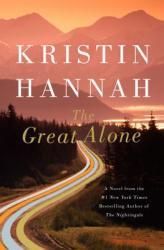
I loved The Nightingale and was hoping this would be another great story by Hannah, but I wasn't impressed. The story takes place in Alaska, but the story has to do with marital abuse and I just couldn't get into the story. It was horrible, but I can't recommend.
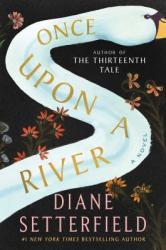
I know by now there isn’t much that hasn’t been said about Diane Setterfield’s latest offering, Once Upon a River, but I want to add my two sense. There is a reason why Setterfield’s beautiful haunting stories have touched millions since she first came out with The Thirteenth Tale, several years ago. The simple reason is, her books use the art of story as a medium to express to the heart, truths that words alone have not always been able to accomplish. Stories have a way of creeping up on you and taking root in the heart of the reader by the author being able to take everyday experiences and ideas, such as love, loss, and beauty and bring them to an emotional level, making them more real. And sometimes, a story, to fully germinate, takes time and patience; and knowing not only the characters, but its environment and history intimately. And that’s ok, it makes reading them, when they are finally available, that much more satisfying.
That is why I am such a fan of Setterfield’s works! She has a way of enveloping her characters in the power of story, and produces such a strong relationship between the characters in her stories and their environment! And Once Upon a River is no different. It uses the medium of story to forge a relationship between the environment of the Thames river and the community living on its banks, to weave a tale that strongly evokes the searing pain of loss, the beauty of love, and the hope of reunion.
The premise is simple. One wintery night a man, stumbles into a local tavern of a small English town on the river Thames, with a mute girl, who at first appears dead. What follows from that incident is a wild, haunting story that is weaved day in and day out, and changes and flows like the Thames river it is set upon. As the girl, appears mute, the mystery as to where she came from deepens, as several villagers claim her as their own missing daughter, or sister. The characters include every villager and every villager is included in this story. As the tale develops, it is clear how her arrival builds up hope in some, and compounds the searing loss for others, but the truth, later revealed, is not so simple.
Filled with haunting prose, drawing upon local and international folklore, strong character development, from the most minor character to the most central, and a beautiful story of love, loss, and reunion; Once Upon a River is a great feat in modern storytelling. Part mystery, part fairytale, and part legend. If you love any or all of these elements, you need to pick up this beautiful tale today! Thank you to the publishers and #netgalley for my DRC for review!
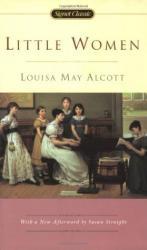
Little Women is a classic piece detailing a few years in the life of the March family. It is a beloved tale and for good reasons. This book shows the true inner workings of a family during the civil war and how love is stronger than even death. I really enjoyed Little Women because it included the historical details of the time that I find interesting, such as: having home servants even when in poverty, the intricacies of the dress, and social commentary. Little Women shows the true heart of sisterhood and friendship, along with the bonds made between parents and children. Through thick and thin, the March sisters are there for each other. Truly a delightful read for anybody.
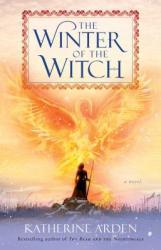
In everyone’s reading adventures they find that there are those books they come across that they like, some they love, and then there are those books that resonate so deeply, that you say to yourself and all who will listen “this is why I read.” Its not just the stunning world building, the lyrical prose, or the deep character development, but something more, that speaks to your soul, about who you truly are or what the world around you is really like. Something that can’t always be expressed through spoken word or any other means, expect through story. This is what Katherine Arden’s The Winter of the Witch has done for me.
Picking up right where The Girl in the Tower had left off with Rus in shambles and the people needing to blame someone for what happened to their city they naturally turn to Vasya. I am not going to try to explain the rest of the plot because so much happens. But suffice it to say that in this one there is so much more wintery magic, more of the winter king, everyone’s favorite hero, and so much more action and adventure I could barely keep up.
This book flows seamlessly from the 2nd to the third one without taking a single breath. And the blending of the historical and fantastical is so complete it totally had me believing that 13th century Rus existed side by side with this wintery magical world called midnight and had me longing to time travel so I can visit it. With mysterious and magical midnight roads, it’s chiriti and spirits of all types, its magical house, and a lake on the edge of worlds, it’s flying horses, its river monsters and so many other fairy tale elements this book appealed to me on so many levels. It really awakened that inner child in me, that I think is in all of us that loves fairy tales and magic, wants to be accepted and loved but also wants to have purpose and feel needed. Their was just so much about this fable and Vasya as a character that spoke to my soul that it’s hard to express it all in one measily review.
Vasya also grows so much into her power in this tale. She really discovers her identity and the book delves not only into more of who she and is becoming but also who her family is and their magical legacy. I really grew to love Vasya as a character and her determination to never give up even in the most difficult of circumstances, her love of her city and people, her strength, and how she doesn’t just accept her circumstances but fights for better things and saves herself and those around her.
Can we also talk about Vasya and Morozko relationship for a second. I love their relationship and think it is a great representation of what love in real life is often like. I love how they grow into their relationship, and that she loves him but doesn’t always love everything about him or the choices he makes. It proves what is often true about love that it is not always magic and sunshine and unicorns but can often be difficult. It often requires sacrifice and one to be selfless enough to make sacrifices. It also requires each partner to live with each other in daily life with all their imperfections no matter how much it annoys and frustrates you. I love the fact that, though Morozoko is this ancient powerful being, his character also has imperfections and issues and his own sorrows that Vasya has to learn to live with. I also love that they save each other in more ways than one, and in the scenes when they do connect it is often tender and beautiful and heart wrenching all at the same time.
Beyond the character development, the story itself is filled with lush and atmospheric imagery, beautiful and lyrical prose, and quirky and whimsical details that speak to my heart childhood heart. I also, being a history major, really appreciate the research done for this series with regards to historical detail. In history we call this establishing historical context, putting the person we are studying in their historical environment within the whole of history. It blended Vasya’s magical world and grounded her in a specific place in history seamlessly.
All this to say I loved this book and this series! Both are a solid 5 stars! And when it comes out next Tuesday Jan 8, run, don’t walk to your local library or book store to get this beautiful fable and complete your collection of one of the best series of all time. Seriously it’s up there with CS Lewis and Tolkien for me ya’ll. Thank you to Edelweiss and Del Ray for my Digital Review Copy for review!